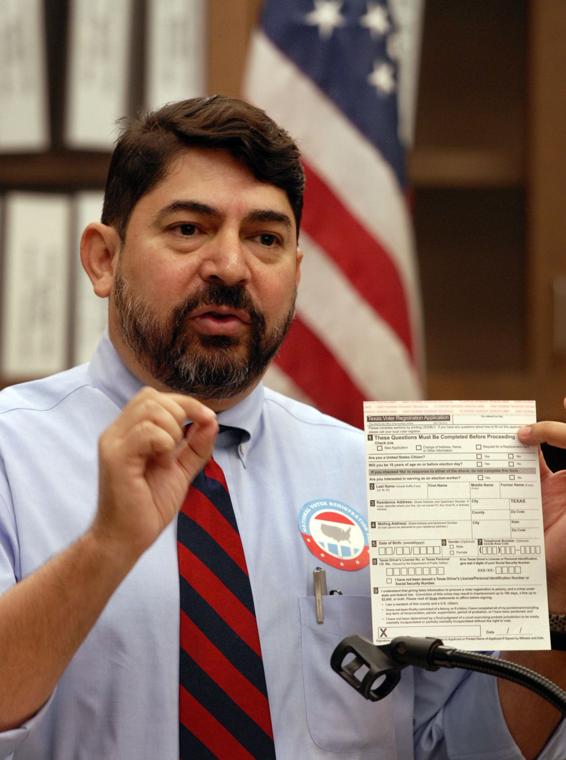A little more than two weeks after the Secretary of State’s office released a list of thousands of people it said may be ineligible to vote, the Cameron County Elections Office continues to eliminate people erroneously included in numbers sent to the county.
On Jan. 25, Texas Secretary of State nominee David Whitley released a list of nearly 100,000 registered voters whom he said may not be U.S. citizens and turned those names over to the Texas Attorney General’s Office, which investigates voter fraud.
Whitley utilized data from the Texas Department of Public Safety for registered voters who applied for a driver’s license or identification card and indicated they were not citizens dating back to 1996. However, Whitley’s office never verified how many of those people later became citizens and registered to vote — a task left to county officials, like Cameron County Elections Administrator Remi Garza.
Garza said on Jan. 28 that Whitley’s office initially provided a list of a little more than 1,600 names of people who may be illegally registered to vote, but, after some conflicting information from the Secretary of State’s office on the total number, Garza said Cameron County was reviewing 1,300 names.
Since then, Garza said nearly 400 more people have been removed from the list, leaving approximately 900 registered voters to review.
Garza was able to initially remove the 300 from the list through what’s called “source code 64,” which indicated those registered voters originated from DPS. Confusingly, on Jan. 28, Whitley’s office called to say that 1,500 names rooted from “source code 64,” but then called back to say that was incorrect, leaving Garza with 1,592 registered voters to review, which Garza was able to whittle down to that 1,300 number.
Since then, Garza said his office has been reviewing the names of people who were registered to vote by voluntary deputy registrars, who are required and trained to ask people whether they are citizens when registering them to vote.
“Essentially, we believe that interaction with the volunteer deputy registrar eliminates the question of whether they were citizens or not at the time of registering because the volunteer deputies are more assertive in making sure people are aware of the citizenship requirement,” Garza said.
As of last week, Garza’s office was still reviewing registered voters who fit into that category.
“The next step is looking for records of individuals who submitted their paperwork to DPS before they had registered to vote and look at their applications and if I’m satisfied with their affirmative declaration of citizenship happened after they had been at DPS, then we will probably remove them from the list,” Garza said.
He believes this process, though time consuming, will leave his office with a smaller number of voters leftover from the Secretary of State’s list.
“If I do that, it will leave me with approximately 298 individuals to review in greater detail,” Garza said.
That last step, however, is approximately two weeks away.
And Garza said if he does find something questionable in someone’s voter registration, he will initiate an informal request for clarification on citizenship.
“If there’s no response to the informal request then we’ll go to formal with a request for proof of citizenship and then once we get that information, if there is something actionable, we will refer it to the DA’s office,” Garza said.
That process includes a formal letter being mailed to the voter in question asking for proof of citizenship and if that particular voter doesn’t provide proof within 30 days, Texas law requires they be removed from the voter list.
Whitley, who appeared before lawmakers in Austin for a confirmation hearing Thursday, faced tough questions from Democrats who questioned why he released an inaccurate list, which he turned over to the Texas Attorney General for investigation.
The Texas Tribune reported that Whitley defended his decision, saying he told county elections officials that the list may be inaccurate and that he turned it over to the Texas Attorney General’s Office because the Secretary of State’s Office has no investigative authority.
Meanwhile, the list has now resulted in Texas being targeted by three separate lawsuits.
As for Garza, he has said he felt the release of the inaccurate list is troubling and wished Whitley’s office had consulted with counties before releasing it.
“I think one of the unintended consequences of this list is that people are questioning their own registration status, which I think is an outrage,” Garza said.
He said he also felt that the list’s release might be a sign of more to come.
“I am concerned about which source of information they will access next to raise questions about people’s registration,” Garza said.




